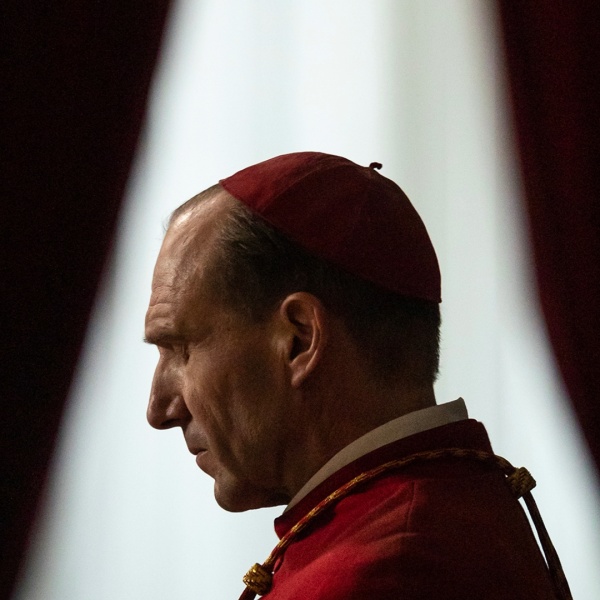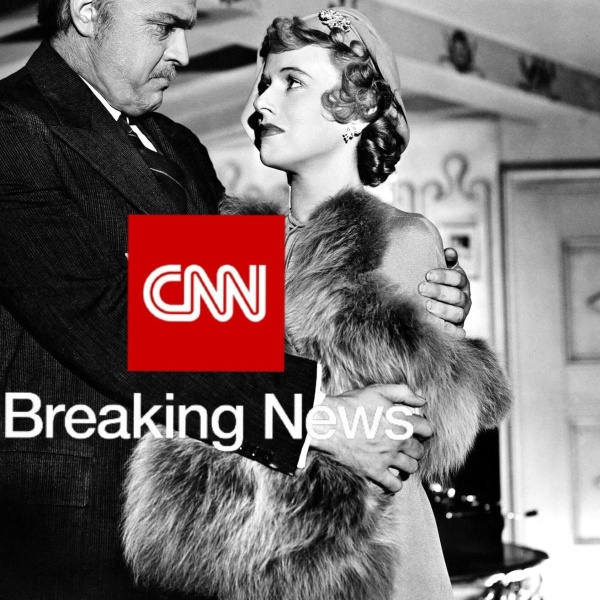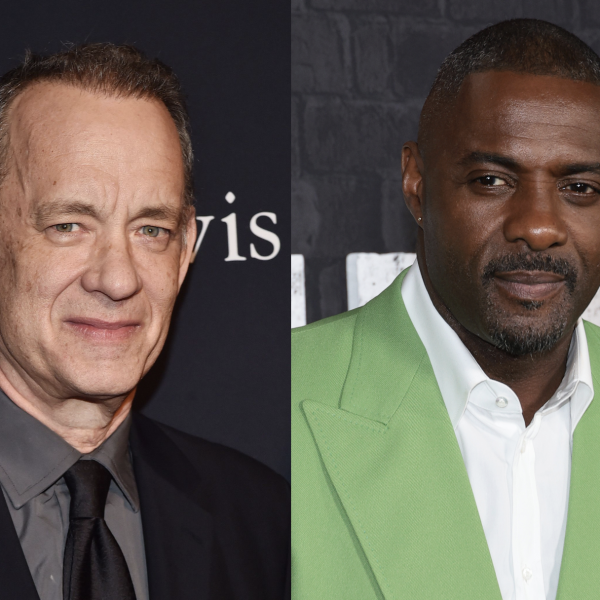Look closely at the logo on the slide deck that Skydance shared with investors this morning when it confirmed the company’s impending merger with Paramount: The cursive Paramount font has already been replaced with the font and underlined swoop of the Skydance logo. Already, its new owners are managing the message: This is a seamless merger, but this is not the same legacy studio.
Enter: New Paramount. That’s the label CEO David Ellison and president Jeff Shell sold to Wall Street this morning, making clear they intend to transition Paramount into a major media company that embraces technology.
Nothing is over until it’s over. Paramount-Skydance opened a 45-day window for other bidders to emerge, and the transaction is not expected to close until Q3 2025 — presuming the Justice Dept. gives the merger its blessing.
For now, there’s some relief. If Sony bought Paramount it would be stripped for parts, thousands of jobs would be made redundant, there would be one fewer buyer, and a legacy studio would evaporate.
A merger with Skydance however is a different story, even if it still brings with it some questions and concerns. Shell made the case that Skydance was “literally designed almost ideally” for Paramount to be its partner, and it has “all the elements to make Paramount stronger” in theatrical, streaming, animation, sports, and beyond.
We hope he’s right, but for now we have six burning questions for the New Paramount leadership.

Who Is David Ellison as a Studio Mogul?
Ellison opened Monday’s investor call by saying that Paramount needs to be “positioned to be able to expand into a tech hybrid.” He repeatedly beat the drum of New Paramount as one that needs a “symbiotic relationship between art and technology.” That includes rebuilding what’s under the hood at Paramount+; integrating Oracle’s cloud into its animation vertical; and expanding into gaming and consumer products.
If it seems like Ellison (whose dad is Oracle founder Larry Ellison) is a tech bro looking to shake up Hollywood, you’re not wrong. Still, Skydance produced its first film nearly 20 years ago (“Flyboys” starring James Franco, 2006) and produced enough hits (the last four installments of “Mission: Impossible,” with a fifth en route) that he’s no longer perceived as an arriviste.
When Paramount was still being shopped, James Cameron, Jeffrey Katzenberg, and Ari Emanuel all came to bat for Ellison. Sources IndieWire spoke with believe he’s not a lone operator, doesn’t believe he has all the answers, and surrounds himself with people who have been in the game for a while, whether that’s Shell, Jeff Zucker, John Lasseter, or Dana Goldberg.
Scott Derrickson, who just wrapped upcoming Skydance thriller “The Gorge” for Apple TV+, tweeted that Ellison and his top brass “are all smart, decent people who truly love movies.”
Shell is biased, but the former NBCUniversal chief also had some glowing words about what kind of executive Ellison is and will be.
“If you went into a lab and designed the perfect executive for the next-generation Hollywood company, it would spit out David Ellison, because he can not only go to a table read, he can go to the next room and code,” Shell said. “This business is heading toward a technology-media hybrid and David is perfect to lead it.”

What Happens to the TV Networks?
Shell acknowledged that linear is “challenged and declining” and “we have to run these businesses in a different way as they decline.” In fact, he added that the industry still doesn’t know how low linear will drop. That will lead to some “tough decisions” and rapid changes, but he said CBS still figures to be a big part in Paramount’s future regardless and Paramount’s cable networks need better exploitation.
“I personally think the linear business is going to be a strong business for decades to come,” Shell said. “We’ll be sitting here in 10, 20 years talking about a significant amount of viewership on the CBS network. But it’s going to become part of the equation as opposed to the driving part of the equation, which is why you’ve got to be involved in both sides. We think it’s going to continue. We don’t think it’s going to worsen, but we don’t actually think it’s going to get better, either.”
CBS, he said, has a lot of “Skydance shows” and people will still want CBS and its array of sports. Shell said he expected Paramount to be a “buyer rather than a seller” when it comes to sports rights that might become available.
Ellison and Shell also left the door open for New Paramount to sell some assets, saying that some are “not strategic to where we’re going.” Current CEO triumvirate Chris McCarthy, Brian Robbins, and George Cheeks have been in talks about a sale of BET for $1.6 billion. The word “Showtime” didn’t come up once during today’s call.

What Role Does Animation Play?
Ellison and Shell want their own animation studio to rival Pixar and DreamWorks and are sticking with former Pixar boss Lasseter to get them there. They believe Skydance can supplement Nickelodeon and continue growing that brand, while Oracle can increase efficiency and reduce costs.
Animation, Ellison said, has largely been an on-premise business. Ellison wants to put that process into Oracle’s cloud, as he’s done with current Skydance animation projects. The cloud model is part of the plan for moving the company into the world of tech and reducing up to $2 billion in cost. And though it wasn’t mentioned on the call, the slide deck sent to investors also mentions the use of generative AI to “turbocharge content creation capabilities.”
On the feature side, Skydance still has a multi-year film deal with Netflix that starts with the release of “Spellbound” later this year. Ellison said starting in 2026, it plans to make two animated feature films per year as part of that ongoing Netflix deal.
Shell’s ringing endorsement of Skydance’s deals with Netflix and Amazon should be a good sign for the future of non-Paramount Skydance properties, including future seasons of Amazon’s “Reacher” and AppleTV+’s “Foundation.”

What Does $2 Billion in Cost Cuts Look Like?
Current CEOs already said they plan $500 million in cost savings, which probably translates to more layoffs. However, Skydance said today it has earmarked $2 billion “to the penny” in cost efficiencies. No mention of layoffs on today’s call, but the bulk of that savings may come from some of Skydance’s ideas to do things smarter and cheaper.
Sources we spoke to believe that Paramount has been mismanaged dating back to the Viacom days. One industry source told us Paramount specifically has been inefficient when it comes to getting the most out of their distribution or advertising platforms, and it wouldn’t take magic to make it all work.
What we will see is a re-org and restructuring designed to prioritize cash flow. Oracle’s cloud studio will be a big facet, while on Paramount+ they want to retool the algorithm recommendation engine, the user experience, and advertising tech to make it more profitable. They also want to ramp up consumer products and other ancillary businesses.
Skydance also has a modest gaming vertical that includes upcoming console games for Marvel and Star Wars, and a recent VR game for “The Walking Dead.” Ellison said he believes they can do for Paramount’s brands what they’ve done for the Disney brands.

What About Paramount+?
Even with 72 million global subscribers, Paramount+ is far from profitable. Some on Wall Street believe Paramount should get out of the streaming game entirely. However, Ellison said he absolutely believes Paramount+ can work as a standalone entity.
Shell had some big-picture thoughts on the state of streaming. He sees bundling as the future, with consumers seeking a one-stop shop where they can find anything they want. For consumers, he said, “the experience right now is not great.”
“If you’re in that bundle, you’re going to win, and if you’re not in that bundle, you’re in real trouble,” Shell said.
Shell didn’t rule out the possibility of a Hulu-like joint venture or finding another streaming partner for Paramount+. RedBird partner Andy Gordon even hinted during the call’s Q&A there could be an interesting combination of Paramount+ and the free Pluto TV.

What About the Theaters?
Shell said he’s a big proponent in theatrical windowing and Ellison said Skydance’s long-time theatrical deal with Paramount continues. But it’s still one less outlet making movies that could go to theaters, and National Association of Theater Owners president Michael O’Leary said in a statement Monday that the organization will wait to be convinced that this merger is good for its members.
“Our guiding principle in this analysis will be whether this transaction will result in more movies being made for the global theatre-going audience or less. We are encouraged by the commitment that David Ellison and the Skydance Media team have shown to theatrical exhibition in the past,” O’Leary said in part. “A Paramount that recognizes the unique place of theatres in communities across this nation and around the world will be a catalyst for more movie options being available for movie fans today and for generations of new fans in the years ahead.”
NATO didn’t respond to an additional request for comment. However, it’s a peculiar statement since NATO didn’t say much regarding previous mergers like Disney and Fox, Warner Bros. and Discovery, or Amazon and MGM.
In the near term, Skydance says not to worry. “We buy these companies not just for the IP, but for the people,” Shell said.







